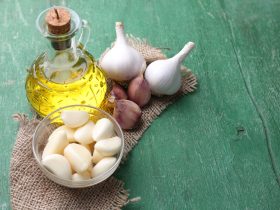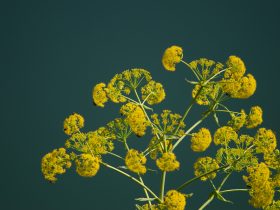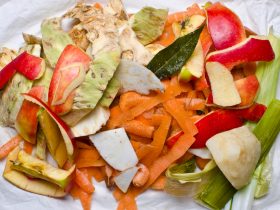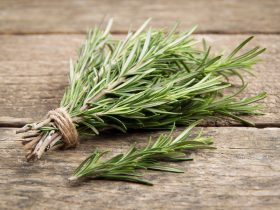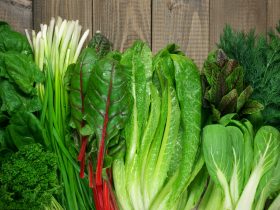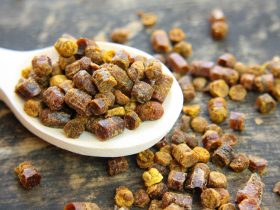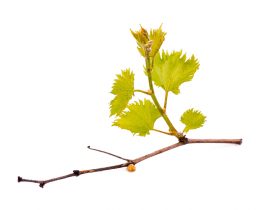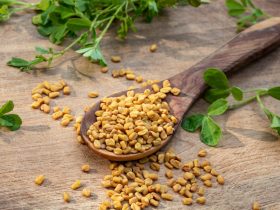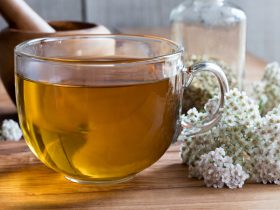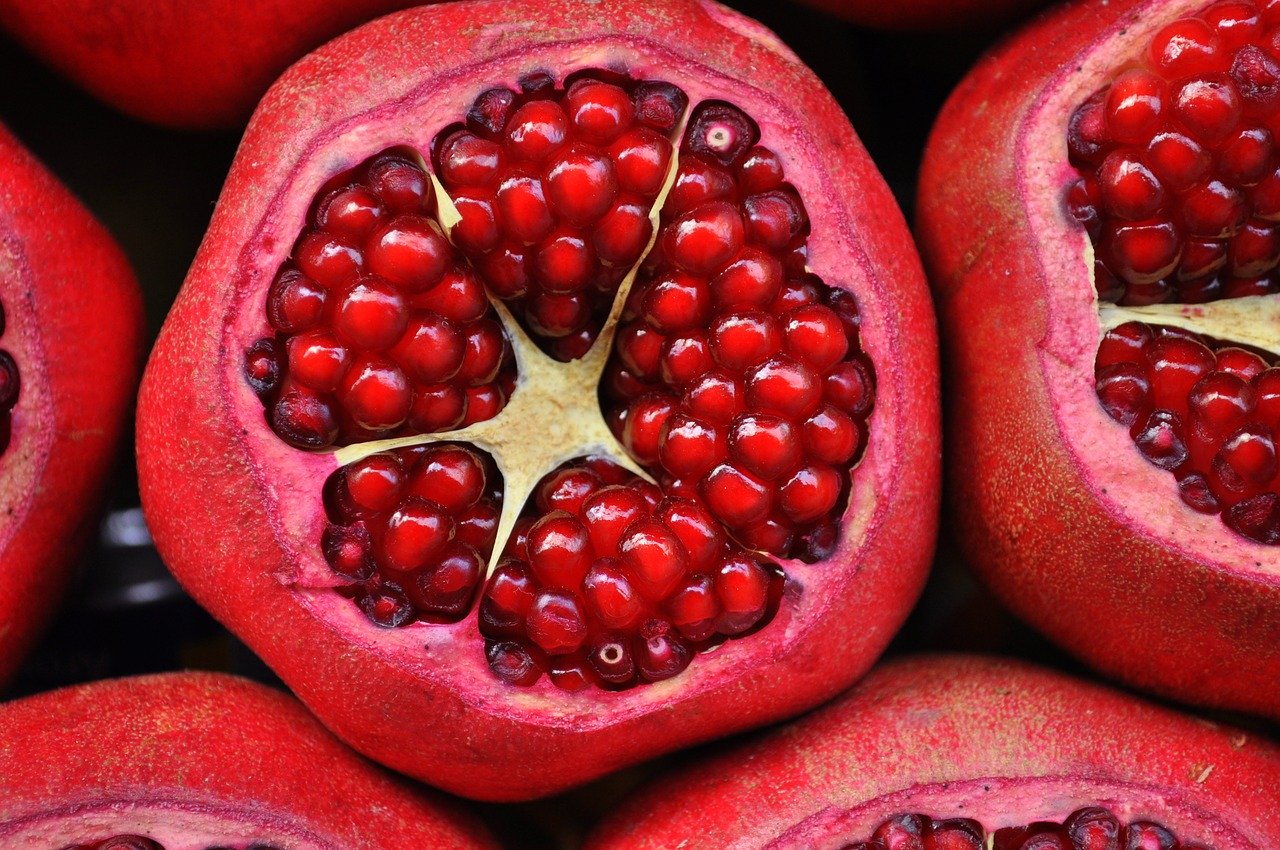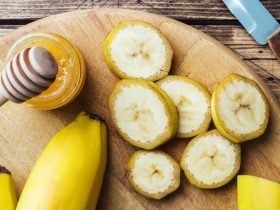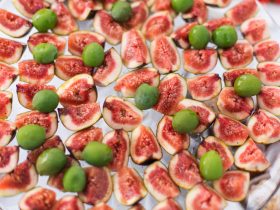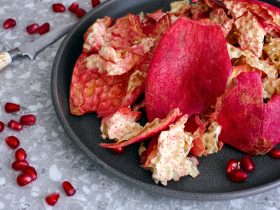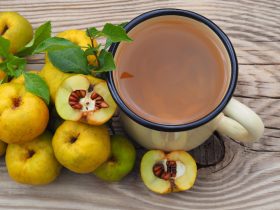The pomegranate is mentioned in 3 verses of the Holy Quran (Al-An’am 99, Al-An’am 141, Ar-Rahman 68). Our Holy Book tells us that the pomegranate is one of the most beautiful fruits in the world and in paradise. The pomegranate is the fourth most mentioned fruit in the Qur’an, after dates, olives and grapes.
Pomegranate is rich in minerals such as potassium, phosphorus, calcium, sodium, iron, as well as vitamins A, B1, B2, B3 and C. Potassium and sodium protect the water balance of our body; potassium also removes accumulated excess fluid and edema, strengthens the cardiovascular system and allows minerals to easily enter the muscles and bones.
People who eat pomegranate do not have problems with mineral deficiency in the nervous system and bones. Ibn Sina said: “If you have inflammation and sores (pyelonephritis, nephritis) on your kidneys, eat plenty of sweet pomegranates, and in case of itchy eyes, apply pomegranate juice on your eyes like antimony. In case of bleeding gums, mouth ulcers, angina and bad breath, boil pomegranate peel or pomegranate flower in water for 5 minutes and gargle.”
If hemorrhoid knots are painful and often bleed, boil half of the pomegranate juice, evaporate half of it, add the same amount of apple vinegar and boil for another 5 minutes, and soak hemorrhoid in this solution and the knots will shrink quickly.
| “Eat pomegranates with the veil inside them because it purifies the stomach.” Note: (All narrations about pomegranates are fabricated and weak.) |
In the treatment of baldness, pour pomegranate seeds into olive oil, boil, strain and rub on bald areas 3 times a day. The pomegranate really cleanses the walls of the stomach from the inside and strengthens the muscles. It increases the heart rate, prevents diarrhea and has a worm-repellent effect. When you pour pomegranate juice into the nose, the polyps in the nose begin to shrink.
Eating sweet pomegranates during cough relieves cough and clears the lungs. A sour pomegranate reduces sickness, has a diuretic effect and prevents bad breath from the stomach and esophagus. Eating sour pomegranates is useful during biliary stagnation. Extract juice from a medium-sized pomegranate, mix it with the same amount of honey and boil it for 5 minutes; after that, apply the mixture on your eyes like antimony in case of eye diseases. You can also apply it on incurable mouth and palate wounds. Inflammation is absorbed when this mixture is applied to the swollen area during inflammation of the nail bed.
The pomegranate lowers high cholesterol in the blood, cleanses the arteries, improves blood circulation to the brain, strengthens memory and mental ability, dilutes the blood and normalizes increased heart rate. Boil pomegranate peel in water for 5 minutes and add a little honey to treat colitis and intestinal ulcers; this mixture is a very strong anti-diarrheic effect. When the sweet pomegranate peel is dried, ground in a coffee grinder into powder and poured on wet wounds, the wounds do not become wet and heal quickly. This powder can be mixed with olive oil and applied as an ointment to wounds.
To prevent hair and beard graying, mix a tablespoon of sour pomegranate peel powder and a teaspoon of clove powder in 100 grams of unrefined olive oil and apply it to hair and beard once a day, and wash off after 3 hours. Vinegar is mixed with pomegranate juice and boiled to treat acne. Pour 100 grams of water and 200 grams of pomegranate juice on 200 grams of barley, boil it on low heat for 10 minutes, strain it, and drink 2 tablespoons before meals for stomach ulcers. The mixture can be stored in the refrigerator for 3 days.
It is better to eat the pomegranate itself rather than to drink pomegranate juice because pomegranate juice can cause constipation as it has very astringent properties; and when you eat the fruit itself, its seeds prevent constipation. Sour pomegranate is the most useful fruit that diabetics can use.
[1] Prophet Muhammad’s (Peace and Blessing be upon him) cousin


